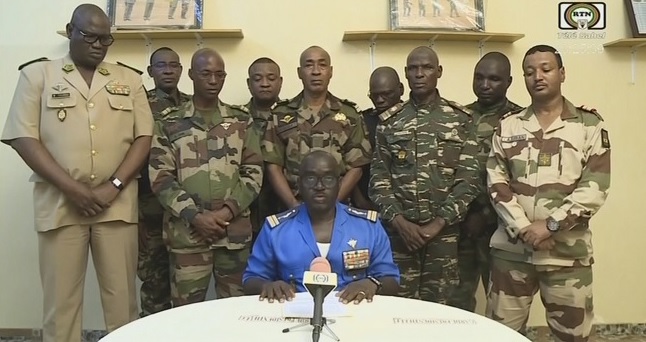By John Ikani
Military leaders in Niger have issued a stern warning against any armed intervention in the country as regional heads of state gather for a crucial emergency summit in Abuja on Sunday.
The summit aims to determine further actions to pressure the army into restoring constitutional order following the recent coup.
The meeting in Nigeria will be attended by leaders from the 15-member Economic Community of West African States (ECOWAS) and the eight-member West African Economic and Monetary Union.
Among the options on the table are the suspension of Niger from regional institutions, severing ties with the regional central bank and financial market, or even closing borders.
At the heart of the summit’s agenda is the restoration of President Mohamed Bazoum, who was ousted from power when General Abdourahamane Tchiani assumed leadership.
In anticipation of the summit, the coup leaders in Niger have issued a warning against any military intervention.
They claimed that the meeting “aims to approve a plan of aggression through an imminent military intervention in Niamey, with the collaboration of non-ECOWAS African countries and certain western nations.”
The junta spokesperson, Colonel Amadou Abdramane, asserted their “unwavering determination to defend their homeland against any external force.”
Adding to the tension, the junta called for citizens in the capital to “take to the streets in protest against ECOWAS and to show support for the new military leaders.”
The military coup in Niger has drawn widespread condemnation from neighboring countries and international partners, who have refused to acknowledge the new leadership and demand the restoration of President Bazoum to power.
President Bazoum’s whereabouts have been uncertain since early Thursday when he was confined within the presidential palace.
Despite this, the European Union, France, and other countries continue to recognize him as the legitimate president, and he has managed to communicate with some international leaders.
In response to the coup, the European Union and France have taken measures, suspending financial support and security cooperation with Niger.
EU’s foreign policy head, Josep Borrell, asserted that they do not recognize the putsch authorities and stand by President Mohamed Bazoum as the sole legitimate leader, urging his immediate release.
The African Union also convened an emergency meeting, demanding that the military return to their barracks and restore constitutional order within 15 days, without specifying the consequences for non-compliance.
This situation poses a significant challenge to Niger, which has been a major recipient of western aid, including support from the EU and the US, due to its role in combating jihadist insurgencies in the broader Sahel region.
The country’s government has been seen as a crucial ally in countering Islamist militancy in the arid region, and its stability has been of concern to international partners.
The potential consequences of Bazoum’s overthrow could also impact the deployment of French troops, with 1,500 soldiers currently stationed in Niger.

































